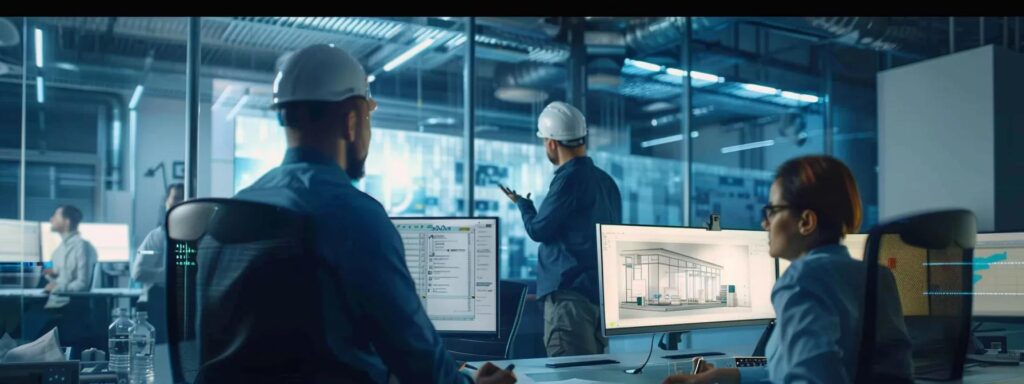
Do General Contractors Do More Than Just Build?
General contractors are the backbone of every construction project, linking design, execution, and post-construction processes. Homeowners in Des Moines, Iowa, often wonder if these professionals simply build structures or if they offer a wider range of services. This article explores the full scope of a general contractor‘s responsibilities—from planning and budgeting to final inspections and financial management—to help property owners achieve successful project outcomes.
The Full Scope of General Contractor Responsibilities
General contractors do much more than oversee construction. They ensure design parameters are met, resources are managed, and quality is maintained, all while keeping projects on time and within budget and meeting safety and legal requirements. General contractors
Defining Project Parameters With the General Contractor
A successful project begins with clear objectives. General contractors work with architects and owners to define timelines, key features, and necessary specifications. By translating design drawings into actionable plans that adhere to building codes, they minimize misunderstandings and costly revisions. In Des Moines, where weather and regulations play a big role, their ability to adapt project parameters ensures consistency with both design intent and budget.
How a General Contractor Manages Project Resources
General contractors excel at coordinating skilled labor, supplies, and equipment. By monitoring progress with project management software, they schedule work, order materials on time, and allocate responsibilities to subcontractors. This approach minimizes waste, prevents delays, and maintains high construction standards while keeping projects financially sustainable.
Ensuring Quality Control: A General Contractor's Duty
Quality control is essential to every project. General contractors implement inspection routines and work with independent inspectors to verify that every detail—from foundation to finishing touches—meets rigorous standards. This regular oversight prevents defects, rework, and helps build trust in the finished residential structure.
A General Contractor's Role in Safety and Compliance
Ensuring site safety and compliance with local regulations is a top priority. General contractors conduct safety briefings, enforce proper protective gear use, and manage permit applications. Their coordination with local authorities prevents delays, fines, and keeps environmental and safety standards in check.
The General Contractor as Your Primary Point of Contact
Throughout the project, the general contractor serves as the main liaison between property owners, subcontractors, suppliers, and architects. This central role ensures clear communication, rapid resolution of changes or issues, and overall coordination that minimizes misunderstandings and stress for the homeowner.
Pre-Construction Services Offered by a General Contractor

Before construction begins, general contractors offer vital pre-construction services. These services set the foundation for the project through careful planning and resource allocation.
Initial Project Planning and Design Input From Your General Contractor
During the planning phase, contractors review architectural plans and offer insights to improve functionality. They help align the design with the owner’s budget and timeline while ensuring compliance with local regulations. This early collaboration reduces future challenges and lays the groundwork for a solid, well-planned build.
Budgeting and Cost Estimation Expertise of a General Contractor
Developing a detailed budget is crucial. General contractors work with financial experts to estimate costs for labor, materials, permits, and contingencies. Their ability to implement value engineering—finding cost-effective alternatives without sacrificing quality—provides homeowners with a clear financial roadmap throughout the project.
A General Contractor Secures Permits and Manages Approvals
Obtaining permits and approvals is a key pre-construction step. Contractors handle all paperwork and coordinate with municipal authorities to ensure that applications are complete and submitted on time, which prevents delays and legal issues.
How a General Contractor Handles Subcontractor Selection
Choosing reliable subcontractors is critical. General contractors use established networks to select professionals in specialties like electrical, plumbing, and carpentry. They assess each subcontractor’s past performance and ability to meet deadlines, ensuring a cohesive team that adheres to quality and project standards.
Value Engineering: A General Contractor's Approach to Cost Savings
Through value engineering, contractors evaluate alternatives to traditional materials and methods, reducing costs while maintaining design integrity. By optimizing labor schedules and material choices, they help keep projects within budget without sacrificing overall quality.
A General Contractor's Role During Active Construction
Once construction is underway, the role of a general contractor intensifies. Their management and coordination ensure the project proceeds smoothly despite daily challenges.
Daily Site Management by the General Contractor
During construction, contractors are on-site daily to manage work schedules, monitor progress, and enforce safety rules. This constant oversight keeps the project aligned with blueprints and timelines, minimizing disruptions and speeding up problem resolution.
How Your General Contractor Oversees Subcontractors
Regular meetings, inspections, and tracking tools ensure that every subcontractor meets deadlines and quality standards. Effective oversight prevents miscommunication among various trade teams, keeping the workflow efficient and coordinated.
Material Procurement and Logistics Managed by the General Contractor
Contractors handle the timely ordering, delivery, and storage of materials. By coordinating with suppliers and managing inventory, they ensure that necessary resources are always available when needed, preventing delays caused by logistical issues.
The General Contractor's Methods for Schedule Adherence
Using detailed project schedules and modern software, contractors track progress and adjust plans as needed to adhere to strict timelines. If delays occur, they quickly reallocate resources to keep the project on course, ensuring a predictable construction timeline.
Problem Solving and Issue Resolution by Your General Contractor
Unexpected challenges, such as weather disruptions or material shortages, are inevitable. General contractors use proactive problem-solving strategies, working closely with subcontractors and suppliers to address issues quickly and minimize their impact on the schedule and budget.
Post-Construction Duties of a General Contractor

The contractor’s job continues after construction ends to ensure a smooth handoff to the homeowner.
Final Inspections and Punch List Completion With Your General Contractor
After construction, rigorous final inspections are conducted to ensure compliance with all specifications. Contractors compile a punch list of any remaining tasks, ensuring that every detail is verified before the project is closed out.
Project Handoff and Documentation Provided by the General Contractor
A formal project handoff includes providing all necessary documentation, such as warranties, maintenance manuals, and as-built drawings. This detailed record ensures transparency and sets guidelines for future maintenance or renovations.
Warranty Management and Post-Completion Support From a General Contractor
Many contractors offer warranty management and post-completion support, including follow-up visits to verify that systems function properly. This ongoing service gives homeowners peace of mind and protects their investment against future issues.
How a General Contractor Handles Final Payments and Lien Waivers
General contractors finalize the project by ensuring all payments are made and collecting lien waivers from subcontractors and suppliers. This step provides financial closure and protection for homeowners against future claims.
Post-Occupancy Review and Feedback With Your General Contractor
After occupancy, a post-occupancy review allows homeowners to provide feedback on the project. This review helps identify any areas for improvement and reinforces the contractor’s commitment to customer satisfaction.
Financial Management: A General Contractor's Fiscal Responsibilities
General contractors also serve as financial stewards for a project, ensuring every phase aligns with the budget and minimizing financial risks.
Developing and Maintaining the Project Budget With a General Contractor
From the start, contractors develop a comprehensive budget that covers labor, materials, and contingencies. They continuously monitor expenditures to maintain financial discipline and avoid cost overruns.
How a General Contractor Tracks Project Expenditures
Using specialized accounting software and regular audits, contractors maintain detailed financial records. Regular reporting ensures homeowners are kept informed about spending and any deviations from the planned budget.
Managing Change Orders and Their Financial Impact by a General Contractor
When changes occur, contractors assess their financial impact, update budgets accordingly, and secure the necessary approvals. This clear documentation helps avoid disputes and keeps the project’s total cost under control.
Cash Flow Management Strategies Used by General Contractors
Effective cash flow management is critical. By scheduling payments in line with project milestones and using phased payment strategies, contractors ensure there are always funds available to keep the project moving. services
Financial Reporting and Transparency From Your General Contractor
Regular financial updates and transparent reporting build trust and allow homeowners to make informed decisions throughout the construction process.
Communication and Coordination: The General Contractor's Central Role

Effective communication is vital to project success. General contractors coordinate between all parties to ensure smooth execution.
The General Contractor as Liaison Between Client and Crew
Acting as the main point of contact, general contractors listen to the homeowner’s vision and clearly convey instructions to the construction team. This liaison role ensures the project remains true to the original design intent.
Coordinating With Architects, Engineers, and Designers
Through regular meetings and progress updates, contractors ensure that architects, engineers, and designers work together cohesively. This collaborative approach results in a final product that meets both technical requirements and aesthetic goals.
Regular Progress Updates From Your General Contractor
Scheduled updates keep clients informed about milestones, challenges, and upcoming phases. These regular communications help manage expectations and address issues promptly.
How a General Contractor Facilitates Stakeholder Meetings
By organizing stakeholder meetings, contractors create opportunities for collaborative discussion on progress, scheduling, and problem-solving. This inclusive process aligns all parties’ goals and streamlines decision-making.
Conflict Resolution and Negotiation Skills of a General Contractor
Conflicts can arise during construction. General contractors mediate disputes and use negotiation skills to reach compromises, preventing small issues from escalating and ensuring the project stays on track. services
Final Thoughts
General contractors do far more than build structures; they manage every aspect of the project from planning to post-construction support. Their broad responsibilities—defining project parameters, managing budgets, enforcing safety, ensuring quality, and maintaining transparency—provide homeowners in Des Moines with peace of mind. With dedicated oversight and effective coordination among all stakeholders, a skilled general contractor turns construction challenges into successful, on-time, and within-budget projects.
Frequently Asked Questions
Q: What additional services do general contractors provide beyond construction? A: They handle planning, budgeting, permits, quality control, safety compliance, and post-construction support.
Q: How do general contractors manage project budgets? A: They develop detailed cost estimates, track expenditures using specialized software, and manage change orders to stay on budget. You can find more about our services to help with your projects.
Q: Why is communication important in a construction project? A: Clear communication ensures that all parties are aligned, minimizes misunderstandings, and keeps the project on schedule.
Q: What role do general contractors play in safety and compliance? A: They enforce safety protocols, secure necessary permits, and ensure that all work adheres to local and regulatory standards.
Q: How does a general contractor resolve conflicts during a project? A: They use negotiation and mediation to quickly address issues and prevent delays.






